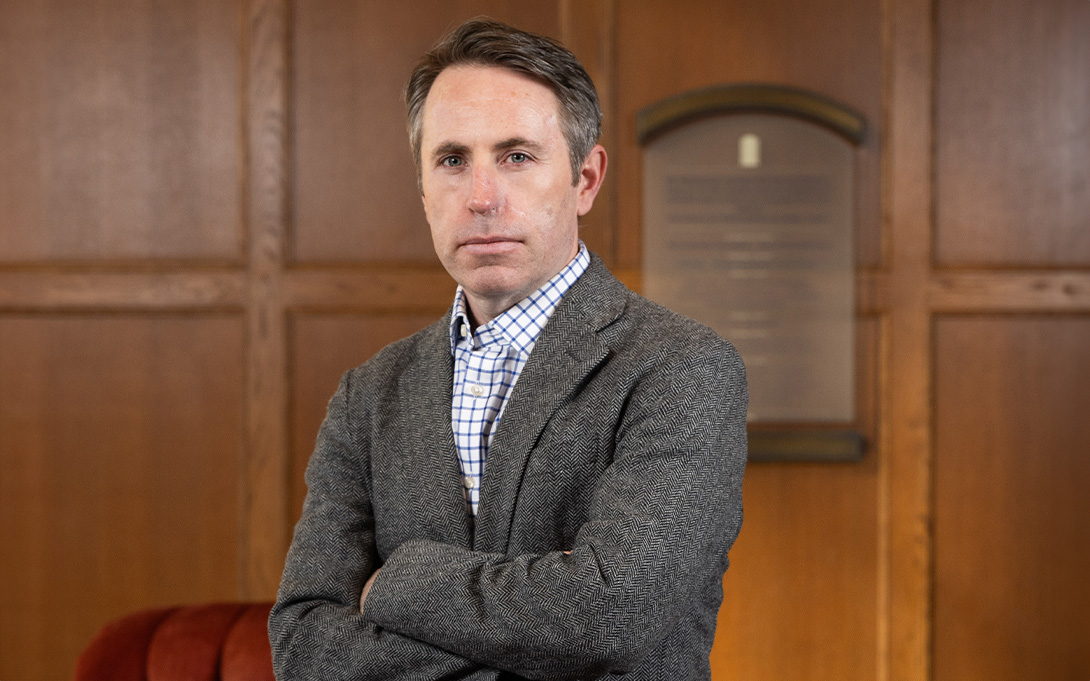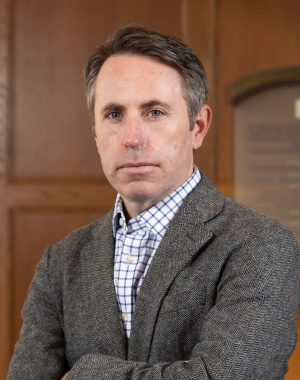
Ford School Professor Don Moynihan, an expert in the inner workings of the federal government and how government programs affect the public, was widely sought-after in the first days of the Trump administration, as it laid out its plans to drastically cut the federal government workforce.
Here are some of the highlights:
Musk aides lock government workers out of computer systems at US agency, sources say
Aides to Elon Musk charged with running the U.S. government human resources agency have locked career civil servants out of computer systems that contain the personal data of millions of federal employees, according to two agency officials.
Don Moynihan, a professor at the Ford School of Public Policy at the University of Michigan, said the actions inside OPM raised concerns about congressional oversight at the agency and how Trump and Musk view the federal bureaucracy.
"This makes it much harder for anyone outside Musk's inner circle at OPM to know what's going on," Moynihan said.
Trump wants to cut the federal workforce. Who they are and what that means, NPR, January 31, 2025
The effects of cuts in the federal workforce won't be felt in just the D.C. area but will be "scattered across the country," according to Don Moynihan, a professor at the Ford School of Public Policy at the University of Michigan.
"The vast majority of the [federal] civilian non-uniform employees are either in Veterans Affairs, Homeland Security or the Department of Defense," Moynihan says.
Moynihan says the government spends "about $350 billion on federal employees every year, out of a $6.5 trillion budget."
Trump's rapid changes in US government stun federal workers, Reuters, January 24, 2025
Trump's order creates a new, much larger category of federal employees called "Schedule Policy/Career" who would not have the typical protections enjoyed by civil servants and can be fired at will.
By deeming anyone involved in "policy" as part of this new category, the pool of people that could potentially be fired expands enormously, because nearly everyone in government touches policy in one way or another, said Don Moynihan, a professor at the Ford School of Public Policy at the University of Michigan.
How DOGE could succeed — or fail miserably, The Washington Post, January 23, 2025
“[The United States Digital Service] has been one of the bright spots when it comes to government innovation over the last decade,” said Don Moynihan, professor at the University of Michigan’s Ford School of Public Policy. He cited its work in helping to create the IRS’s Direct File program and the State Department’s online passport renewal system. “If you have a complicated digital problem, they’re the people you call, and they consistently help to produce good results,” he said.
“The best-case outcome is that you get a sort of USDS on steroids,” Moynihan said. “You get an influx of new talent from Silicon Valley, but you also get the political visibility and momentum that Musk can bring, and you go and fix some problems with how government digital services operate.”
“The negative side of DOGE is that it’s really an exercise in making government smaller rather than improving capacity.” That goal is not quite the same as the one taken up by the idealistic techies in the USDS who left or passed up higher-paying Silicon Valley jobs because they were “motivated to make public services work better.”
What Trump’s Blitz of Executive Orders Means for Science, Scientific American, January 22, 2025
Yet another executive order focuses on a change to the rules governing civil servants — those hired on the basis of their expertise rather than as political appointees. Stating that all federal employees who work on “policy-influencing positions” must be accountable to the president, the order reinstates a policy formerly known as 'schedule F' that the Trump administration attempted to put in place during his first term in office.
“It represents an unprecedented politicization of the civil service,” says Don Moynihan, a political scientist at the University of Michigan in Ann Arbor. “Traditionally, we have this clear dividing line between political appointees and the career civil service. Schedule F seeks to blur, if not completely erase, that dividing line.”
